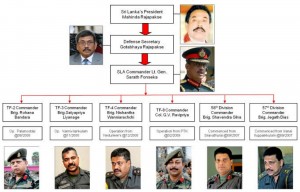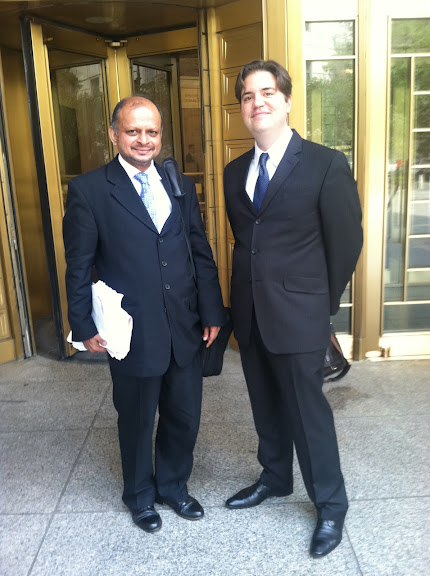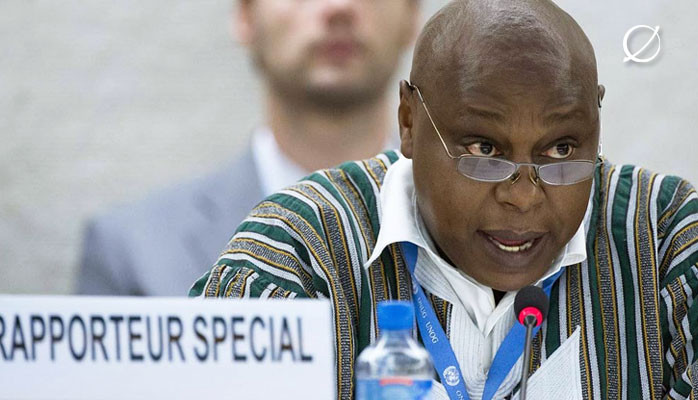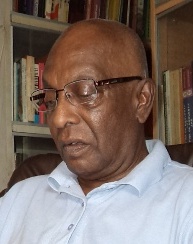Sri Lankan Army deserter gives ‘rare’ insider account of government forces torturing civilians at refugee hearing
[MK
Sivajilingam M.P]
Sri Lankan Army deserter gives ‘rare’ insider account of government forces torturing civilians at refugee hearing
Stewart
Bell-Nov
29, 2012
Passport photo of Ravindra Watudura Bandanage, who was a
captain in the Sri Lanka Army until he fled to Canada and deserted. He has told
immigration officials the army ordered him to place a bomb in the home of a
Tamil Member of parliament in Sri Lanka. / Federal Court
of
An
officer in the Sri Lanka Army, who fled to Canada and claimed he was ordered to
plant explosives at the home of an outspoken opposition politician, is raising
new questions about military abuses committed during the island nation’s long
civil war.
Captain
Ravindra Watudura Bandanage, 38, deserted after flying to Toronto in October
2009.
He
has since told Canadian immigration officials he was aware of torture and other
crimes carried out by government forces against minority Tamils.
Testifying
at his refugee hearing, he said a colonel ordered him to place bomb materials in
the home of a member of parliament named “Silva Jilingam,” an apparent reference
to M.K. Sivajilingam, a controversial Sri Lankan MP then aligned with the Tamil
National Alliance party.
But
the captain said he refused and was transferred to Colombo, where he helped with
search and cordon operations that rounded up ethnic Tamils. He said he knew the
army was torturing, beating and raping civilians.
“I
admit that it is a harassment of these people,” he said. “I admit that.”
While
there has been mounting evidence both sides in the Sri Lankan conflict committed
atrocities, the testimony is noteworthy because it comes from a veteran former
commissioned officer.
Frances
Harrison, a British journalist and author of Still
Counting the Dead, a new book that tells the stories of survivors of the
brutal end of the civil war, agreed it was unusual to hear such allegations from
an ex-soldier and member of the country’s ethnic Sinhalese majority.
“A
few Sinhalese have helped bring out war crimes evidence from Sri Lanka but,
assuming this testimony is truthful, it’s unheard of for a Sinhalese soldier to
speak out openly about human rights violations. It would be a huge blow to the
Sri Lankan government,” the former BBC correspondent said.
The
captain’s allegations come amid growing international pressure for an
independent investigation into the final months of the Sri Lankan civil war. Two
weeks ago, a UN review concluded the international body had failed to protect
civilians despite verified evidence of atrocities.
A
kung fu champion who joined the army in 1993, Mr. Watudura Bandanage told the
Immigration & Refugee Board he had been trained in counterinsurgency.
I know my life is at risk if I go back to Sri Lanka
While
he denied taking part in combat, the IRB did not believe him.
He
recounted how, in 2008, a colonel had asked him “to do something which was not
right…. He said there is an order in regards to this MP, there’s an order from
the Defence Ministry…. I was asked to go to this MP’s residence and place some
explosive material and detonator, and maybe they had planned to blame him for
something and make him leave that area and to do something in that area that way
or maybe they wanted to get rid of him.”
The
Sri Lankan forces routinely framed government opponents during the war to
discredit them and justify their arrests, said Gary Anandasangaree, a Toronto
lawyer who has been making presentations about human rights violations in Sri
Lanka to the UN Human Rights Council in Geneva. But he said it was “rare” to
hear such an account from a former soldier.
In
his refugee claim, Mr. Watudura Bandanage said he spent 16 years in the army,
but feared for his life because he had complained to police about a prominent
politician and his connection to drugs and prostitution.
He
said he had also leaked sensitive information to a Sri Lankan newspaper.
“I
know my life is at risk if I go back to Sri Lanka,” he said.
But
the board ruled in February he was not eligible for refugee protection because
he was complicit in crimes against humanity. It said the fact he was asked to
place a bomb at an elected official’s home showed he was a trusted officer and
aware of the “relentless brutality” of the Sri Lanka Army toward Tamil
civilians.
“I
find that during the last few years of the civil war in Sri Lanka, which
includes the entire period that the claimant was a captain in the Sri Lankan
army, military forces conducted ongoing widespread and systematic attacks on the
civilian population in Sri Lanka. I find that the military forces of Sri Lanka
committed countless crimes against humanity,” IRB member Michal Mivasair
wrote.
Mr.
Watudura Bandanage’s appeal to the Federal Court of Canada was dismissed last
week.
“I
think it’s very significant,” John Argue, Amnesty International Canada’s
co-ordinator for Sri Lanka, said of the ex-soldier’s allegations.
“I
hope it gets discussed publicly because then we get closer to what really
happened in the last stages of the armed conflict and could have a serious
discussion about accountability.”































